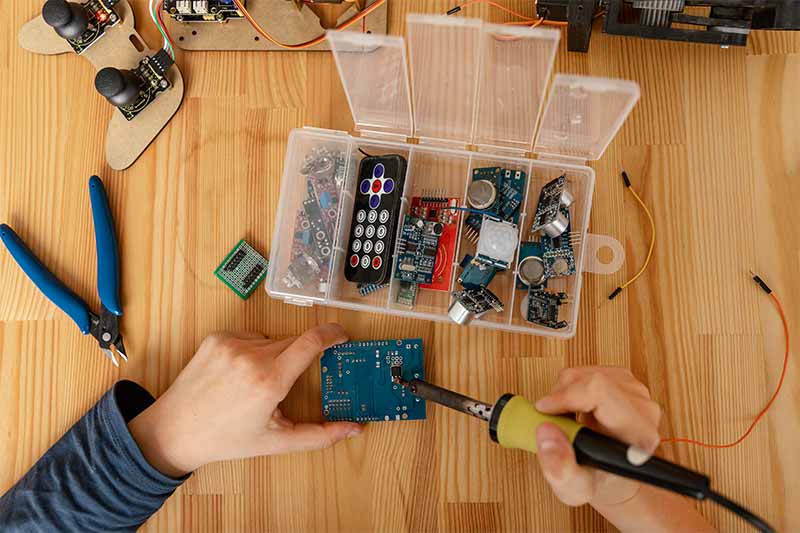
STEM & ROBOTICS
With this course every participant who successfully completes this activity; * Knows the history of the use of robots in education and current developments. * Recognizes the use and application of robotic theories in education. * Learns the limitations and importance of using robots in education. * Knows teaching methods and techniques for using robots in education. * Gets the knowledge of computational thinking skills and basic components. * Knows unplugged events and uses them. * Knows algorithm and flow diagram. * Knows binary number systems and performs ASCII conversion. * Learns how computers work. * Identifies hardware and software components of robots * Knows cable and / or wireless data transfer methods. * Performs motion control using servo motors. * Performs hold-lift-release robot activity. * Knows color detection, object detection, touch-stop, distance, etc. sensors. * Activates the line-following robot. * Knows the Conditions to use logical operators and decision making structures. * Makes robots active, which separate objects. * Activates the robot car with parking sensor. * Performs the fleeing robot activity. * Designs lessons, knows features that make a lesson more innovative. * Uses design, iteration, prototype development steps to solve complex problems. * Knows the elements that make a course innovative. * Knows and applies debugging techniques. * Uses the ability to collaborate on a goal. * Takes care to use effective communication methods and techniques. * Takes care to use effective time management techniques. Course Programme Day 1 ✓ Introductory meeting, explanation of practical arrangements, presentation of timetable ✓ Information about course venue ✓ Ice-breaking activities ✓ Introduction in STEAM Education and in the world of robotics. Day 2 ✓ Teaching children to develop a scientific mind and attitude. ✓ Teaching the skills of scientific enquiry processes. ✓ The importance of creative thinking. ✓ The importance of STEAM education (Lecture and brainstorming activities). ✓ The structure of STEAM lessons for children, imitating the real science workflow. Day 3 ✓ Software support and computer simulations on science experiments. ✓ Introduction to the Arduino software and C++ coding language. ✓ Making projects with the help of your own Arduino set (which our company will give to you). Day 4 ✓ Software support and computer simulations on science experiments. ✓ Introduction to the Arduino software and C++ coding language. ✓ Making projects with the help of your own Arduino set (which our company will give to you). Day 5 ✓ Intro to BeeBots / BlueBots. Intro to Lego WeDo2. ✓ Practical sessions in using robotic equipment. ✓ Intro to Programming. ✓ Intro to Lego Mindstorms EV3. ✓ Developing Classroom curriculum using EV3. ✓ Practical sessions in using EV3 robotic equipment. Day 6 ✓ Incorporating Robotics for Secondary Schools. ✓ Projects using Lego Mindstorms EV3. ✓ Level 2 Developing Classroom curriculum using EV3. ✓ Level 2 Practical sessions in using EV3 robotic equipment. Day 7 ✓ Erasmus+ program: objectives, priorities, actions, forms, budget, tips for applicants. ✓ Planning follow up activities, dissemination and exploitation of learning outcomes. ✓ Course Evaluation. ✓ Certifications.
